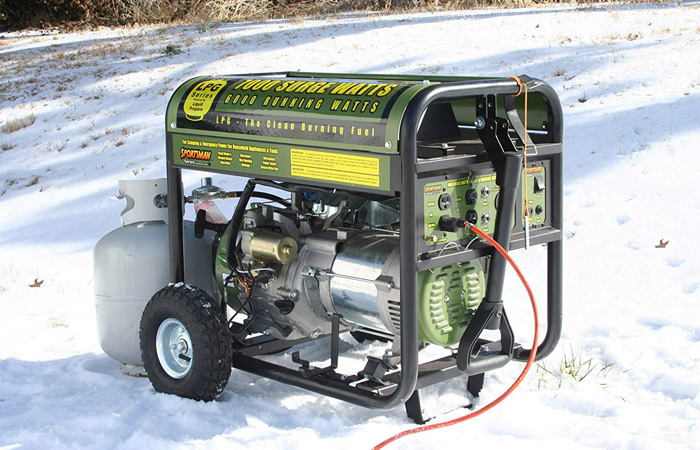Rethinking Lifestyle
Thoughts on Resilience After the Thanksgiving 2019 Snowstorm

I dug out our Christmas present from a few years ago to look through it to remind me all that was in it. Our son, who is a bit of a survivalist got us all “bug out bags”. There are four categories of items in the bag: essentials, food and medications, hygiene and clothing. It is a big heavy bag but it is intended to be there ready to use in an emergency.
The early snowstorm on October 10-11, 2019 had us concerned. Even though we only experienced a few short power outages we decided to sit down after and come up with a “Plan B” for our survival. The bug out bag is a good start, but it is something to grab if you must leave home. Our preference in case of emergency would be to hunker down and survive the storm at home.
Our house in urban Steinbach does not have a wood stove or a wood burning fireplace. We have a natural gas furnace. It needs electricity to keep the fan going and we have no backup electricity right now. Natural gas would typically continue to flow in a power out situation. The city water and sewer systems also have backup power to deal with power outages. I spoke to a friend who said his Plan B is to go to a friend’s house; someone who has a wood stove. We could do that too, but decided we’d prefer not to be dependent on others. Instead we want to set something up for ourselves.
We decided that electricity is the key item we’d need in the case of an emergency, so we are now looking for a gas/propane powered electrical generator. We am looking for about 3500 watts running power. To keep the furnace fan (500 watts), the fridge (725 watts), the microwave (1200 watts) and a few lights (200 watts) on would require 2600 watts. We don’t want a larger generator because it would just use more gasoline or propane per day. We will install a heavy-duty grounded wire from the house side of the main circuit breaker to plug into the generator. We will have to disconnect the grid power before we fire up the generator but with most of our circuits turned off, a small generator could power the essentials.
We would of course need to stock gasoline and propane to last us several days. I called Denis Vassart, the Municipal Emergency Coordinator for the City of Steinbach and the RM of Hanover. He recommends that people have a Plan B that will last for a least three days. After that there would be warming shelters provided in a power out emergency in the winter. Probably local churches would be set up with emergency power and heat.
Besides shelter we would also need food and water. We checked our pantry and freezer. We found much more than a three day supply of food. We could either keep the freezer going which would cost us about 100 watts and would supply extra heat from the compressor or we could turn it off and store our frozen food outside in freezing temperatures. Planning for such an emergency reminded us that we should consider more effort on canning, freezing and drying our garden harvest.
We are confident we could survive and thrive in a winter power outage and even provide shelter for a few extra people.




